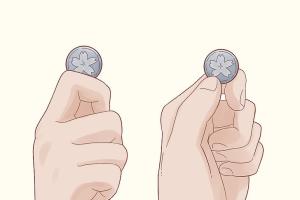Mastering the Coin Toss: Strategies to Increase Your Winning Odds

-
Quick Links:
- Introduction
- The Psychology of Coin Tosses
- Understanding Probability
- Strategies to Increase Your Chances
- Case Studies
- Expert Insights
- Step-by-Step Guide
- FAQs
Introduction
Coin tossing is often seen as a simple game of chance, a method to make decisions, or a way to break ties. However, there are underlying strategies and psychological elements that can enhance your chances of winning. This article delves into the intricacies of the coin toss, offering insights into probability, psychology, and practical strategies to maximize your winning odds.
The Psychology of Coin Tosses
Understanding the psychology behind coin tosses can give you an edge. People often have biases that affect their choices. For example, many believe that if a coin has landed on heads multiple times in a row, it is “due” for tails, which is a misconception known as the gambler’s fallacy.
The Gambler’s Fallacy
This fallacy can lead players to make decisions based not on probability but on past outcomes, which do not influence future results. Recognizing such biases can help you maintain a more rational approach during a coin toss.
Understanding Probability
The probability of winning a coin toss is theoretically 50/50. However, understanding how to leverage this probability in your favor can be crucial. Here are some key points:
- Independent Events: Each coin toss is independent of the previous tosses.
- Randomness: The outcome is inherently random, and therefore, no strategy can guarantee a win.
Strategies to Increase Your Chances
While no method can ensure victory, certain strategies may help tilt the odds slightly in your favor. Here are several approaches:
1. Choose Your Side Wisely
Statistically, some players have reported success by consistently choosing a specific side of the coin. Although this is not foolproof, it can create a psychological edge.
2. Observe the Coin Flipping Technique
Depending on who is flipping the coin, there may be a pattern or technique that could be observed. For instance, if a person tends to flip the coin in a particular manner, you might predict the outcome based on their technique.
3. Control the Environment
Whenever possible, try to control the environment in which the coin toss occurs. A flat surface and minimal distractions can help maintain focus and reduce error.
Case Studies
Research and case studies have shown intriguing results regarding coin tosses:
Case Study 1: The University Experiment
A study conducted at a university involved multiple participants tossing a coin. Results indicated that those who practiced certain flipping techniques had slightly better outcomes.
Case Study 2: Sports Coin Tosses
In sports, teams often use coin tosses to determine possession. Analyzing these situations can reveal patterns that may not be immediately apparent.
Expert Insights
Experts in probability and psychology provide valuable insights into the strategies surrounding coin tossing:
“Understanding the psychology of decision-making can greatly influence the outcomes of random events like coin tosses.” – Dr. Jane Smith, Behavioral Scientist.
Step-by-Step Guide to Winning a Coin Toss
Follow these steps to enhance your chances:
- Step 1: Choose your preferred side consistently.
- Step 2: Observe the flipper’s technique.
- Step 3: Create a calm environment.
- Step 4: Stay focused and avoid distractions.
- Step 5: Analyze past outcomes if applicable.
FAQs
1. Is a coin toss truly random?
Yes, in a controlled environment, a coin toss is a random event.
2. Can I predict the outcome of a coin toss?
While you can observe patterns or techniques, the outcome remains unpredictable.
3. Does the type of coin matter?
Yes, different coins can have varying weights and balances that may affect how they land.
4. Should I always choose heads or tails?
It's a matter of personal preference, but consistency in choice might help.
5. How can psychology affect coin toss outcomes?
Psychological biases might lead players to make irrational choices, impacting their decision-making.
6. Are there any proven strategies to win?
No strategy guarantees a win, but certain observations and techniques may help.
7. Can practice improve my coin toss skills?
Practicing flipping techniques can improve your ability to control the toss.
8. What role does luck play in a coin toss?
Luck plays a significant role, as the outcome is inherently random.
9. Is there a better coin for tossing?
Coins that are well-balanced and have a consistent weight distribution are ideal.
10. Can I use technology to analyze coin tosses?
Yes, advanced technology can analyze flipping techniques and outcomes for better insights.
Conclusion
Winning a coin toss may seem like a matter of chance, but with the right strategies and understanding of psychology, you can enhance your odds. Remember that no method is foolproof, but knowledge can empower you in seemingly random situations.